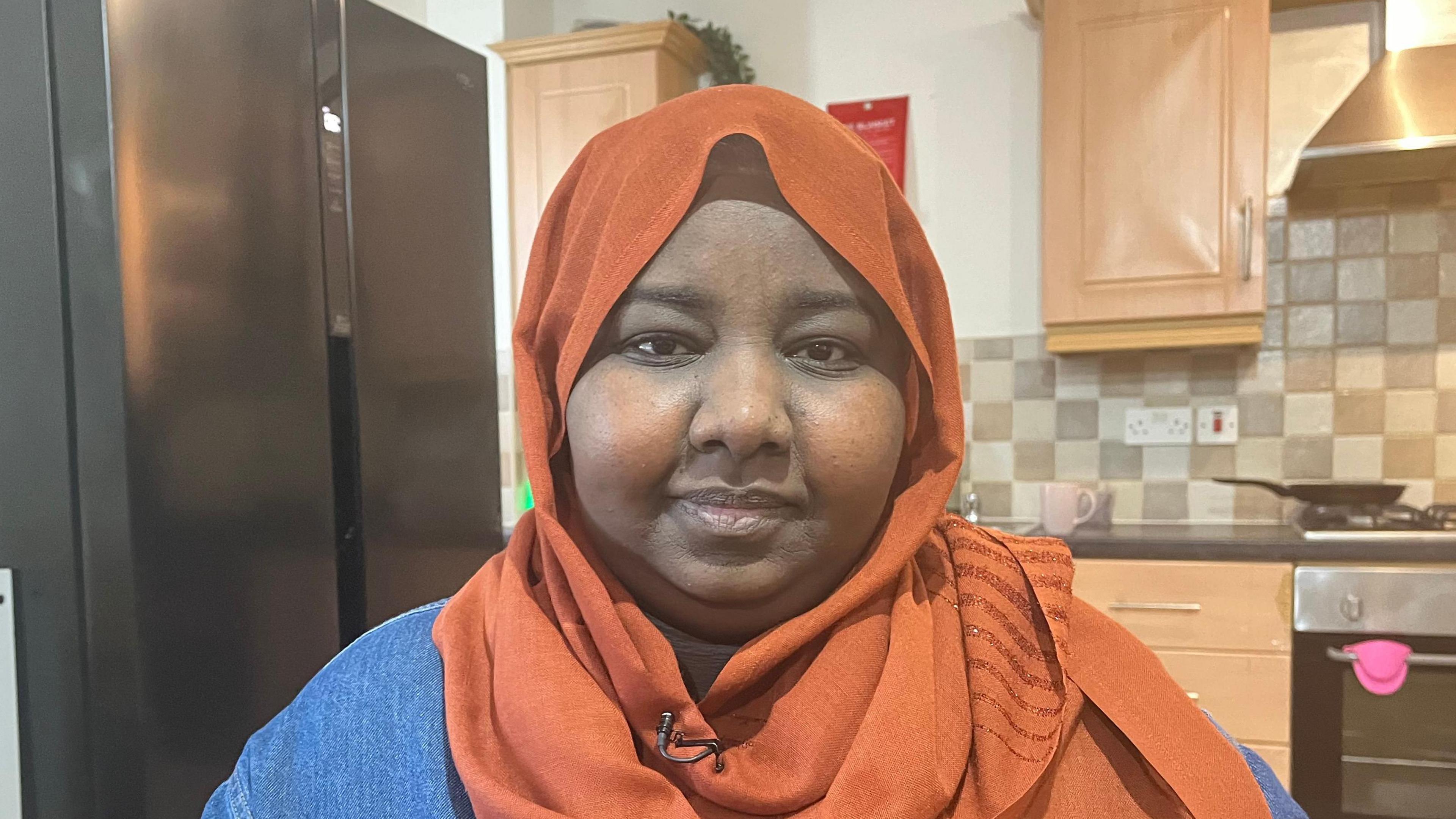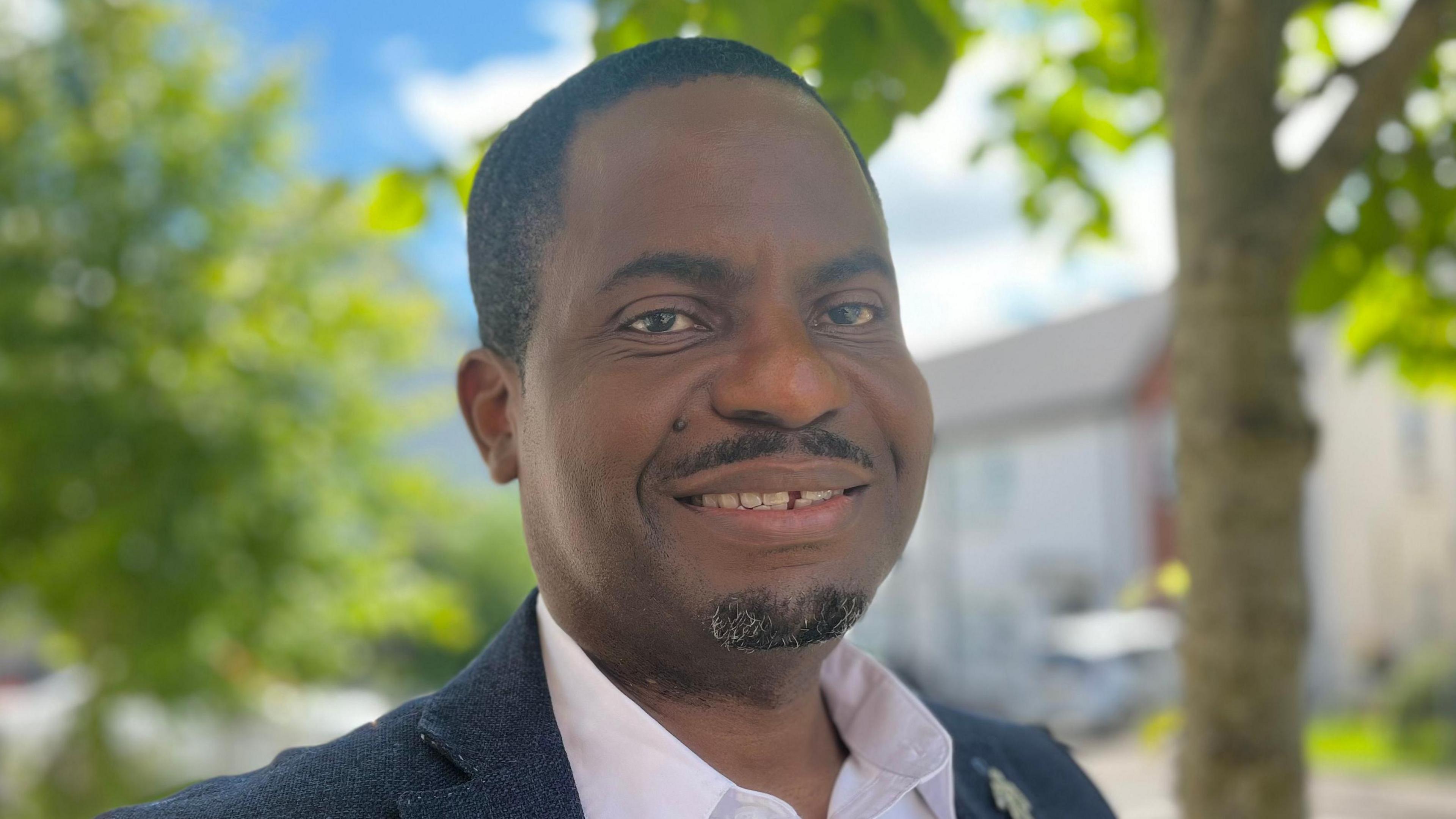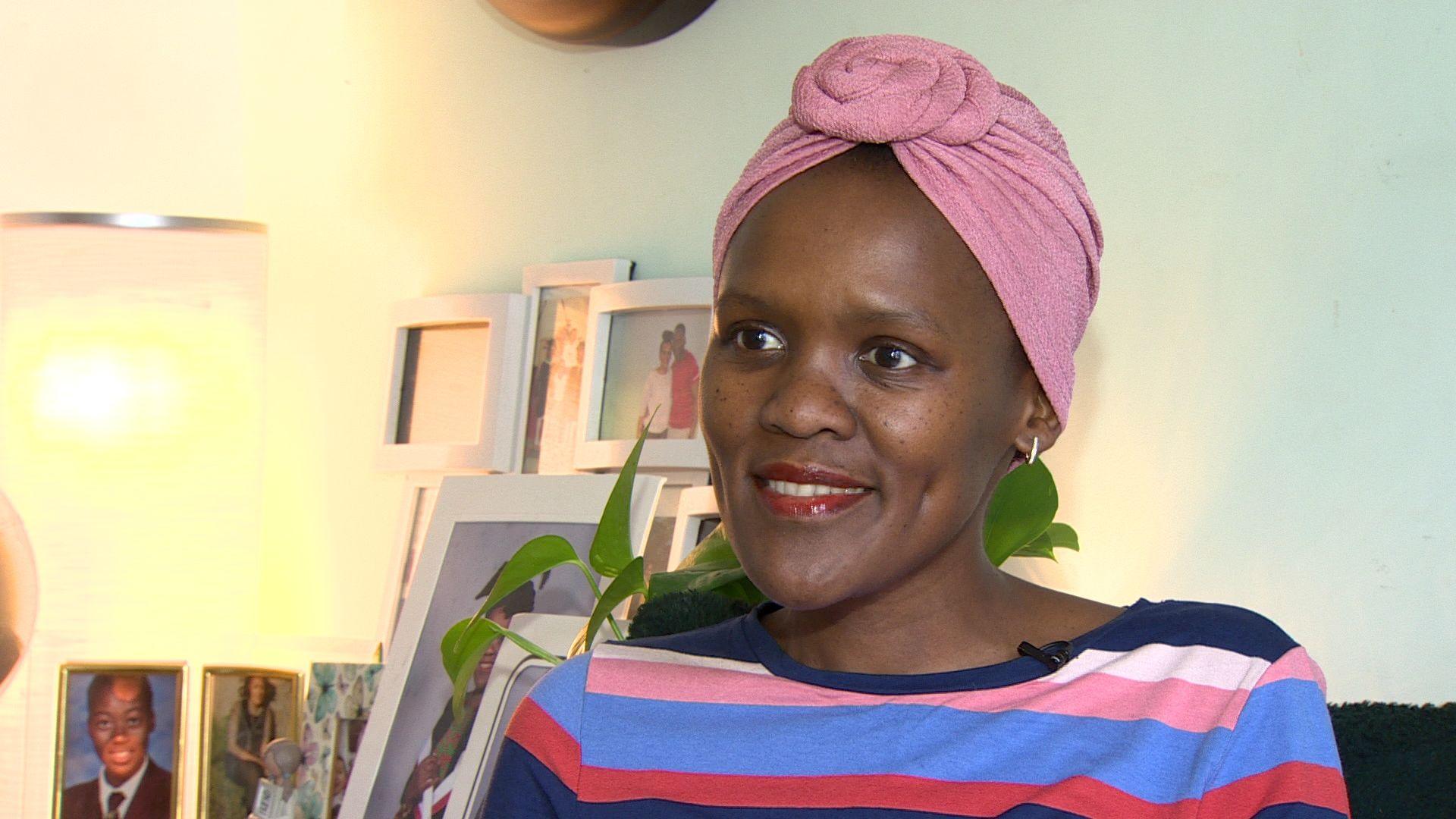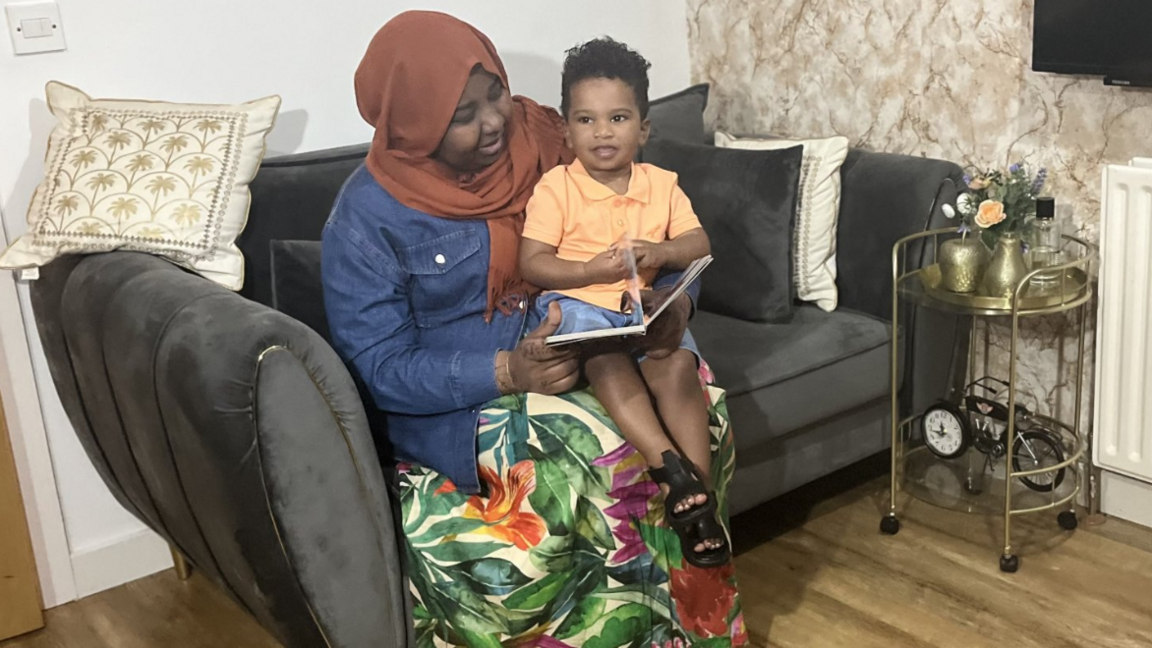Cancer diagnosis delayed by skin colour, say patients

Suha Ahmed found safety in Northern Ireland after fleeing Sudan in 2021
- Published
People from ethnic minority backgrounds have said they believe their cancer diagnoses are being delayed due to a breakdown in communication across the health care system.
Israel Eguaogia who speaks on behalf of iAssist-NI, said he was advocating for nine people who felt their colour, religion and language had hampered their access to health care.
The most serious cases involve delays in detecting the spread of cancer, with some patients now facing a terminal illness.
The Department of Health said while there was support to aid accessibility for those from ethnic minority backgrounds, it acknowledged some patients may "still find it challenging".
'Huge problem'

Israel Eguaogie says some patients have passed away while waiting for treatment
iAssist-NI is a befriending organisation for people in ethnic minority communities.
"Accessing health care for our members is a huge problem," said Mr Eguaogia.
"We are working with nine individuals who are trying to access cancer treatment - others have passed away.
"These nine men and women have the same story to tell because they feel they've been discriminated against because of language barriers or their cases have been trivialised due to the colour of their skin."
'The cancer had spread'
Suha Ahmed, 35, was diagnosed with metastatic cancer - that is where the cancer spreads from its original site to other parts of the body.
She said it took nine months to get a diagnosis after bombarding her GP with telephone calls and numerous visits to emergency departments when she could not cope with the pain.
"Accessing health care was the first difficult thing I faced in this country. I rang my doctor almost every day to see him face-to-face but I couldn't get through or get an appointment," Suha said.
Speaking to BBC News NI, Suha said she found safety in Northern Ireland after fleeing Sudan in 2021.
Following the birth of her son in 2022, Suha experienced severe pain in her stomach and hip.
By the time she got a scan at the Belfast Health Trust, the cancer was found to have spread to several areas.
"By the time I was finally seen, the cancer had spread and it is now too late. I have received radiotherapy and chemotherapy, but now they told me there is nothing more they can do," she said.
"The waiting made me lose time."
'No appropriate interpreter service'

Amanda Suka is now terminally ill after her cancer spread
Suha is pleading with those in the health service to listen to and ensure all patients, whatever their ethnic background, understand their diagnosis.
"I would say please, please - especially to the doctors - please, if you have a patient, don't look at his colour or where he is from - just look to his symptoms, because if you lose time it is so hard,“ said Suha.
Israel Eguaogia highlighted two cases of patients who have died after finding out their cancer had spread and it was too late for medical intervention.
"A big challenge is the language barrier, and we are asking for more interpreters so we can mitigate these challenges," he said.
One recurring theme among those he represents is a sense of not being taken seriously or a feeling of being "prejudiced".
He said there was not an appropriate interpreter service to help them understand their diagnosis or what they are going through.
iAssist-Ni said while there were some interpreters in the system, there were not enough and Mr Eguaogia called on the Department of Health to provide more.
He recalled one incident where a woman was about to be discharged from hospital without understanding the implications of her diagnosis and available care until his organisation intervened.
In a different part of Belfast, Amanda Suka, 43, is living with stage four cancer.
Amanda came to Northern Ireland in 2006, but developed breast cancer and was successfully treated in the South Eastern Health Trust.
While Amanda said her treatment for breast cancer was "excellent", she said if patients had language difficulties, an interpreter must be present throughout their journey in hospital.
Amanda is now terminally ill after her cancer spread.
She told BBC News NI that there were a few times when the health system let her down due to what she says were "language barriers".
While she did not request an interpreter when asked on a form, Ms Suka said other patients need to completely understand what consultants are telling them - as it could be a matter of life and death.
She said others often feel embarrassed about asking for an interpreter and when they turn up at the hospital it is too late to have one present.
'My son is my hero'

Suha with her two-year-old son in their Belfast home
Suha and Amanda each have a child and are planning for their futures.
"Cancer is every parent's nightmare and not knowing whether you will be there for your child," said Amanda.
"I was told people with this illness may have three to five years (to live) which is not good when you have a 14-year-old daughter and you want to see her grow up as a responsible young adult - that’s hard. I try not to think about those things."
Suha's two-year-old son is oblivious to his mother’s pain as he sits on her knee when being read a story.
Suha said she loves living in Belfast, as the people are friendly and have welcomed her into the community.
"My son is my hero, I want the best for him, and he will go to school and grow up in Belfast,” she said.
The Department of Health said there was a commitment to making service improvements and welcoming all feedback, said the department.
In the past year, the interpreter service fulfilled 97% of 130,000 requests and received a £4.8m investment.
The free service has about 450 trained interpreters who cover 37 different languages.
The department said last year it had responded to 93% of emergency interpreter requests within one hour.
Neither of the health trusts involved wished to comment, when contacted by BBC News NI.